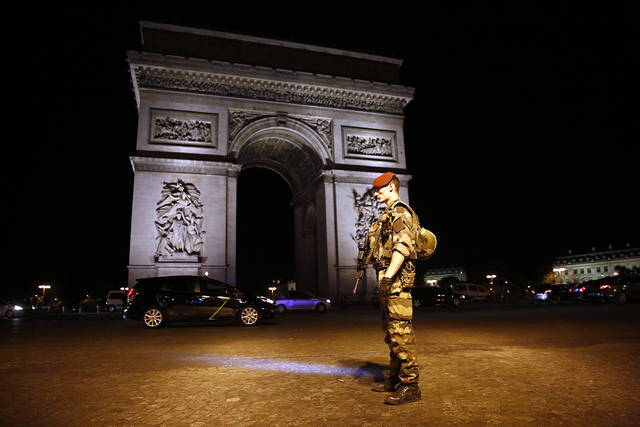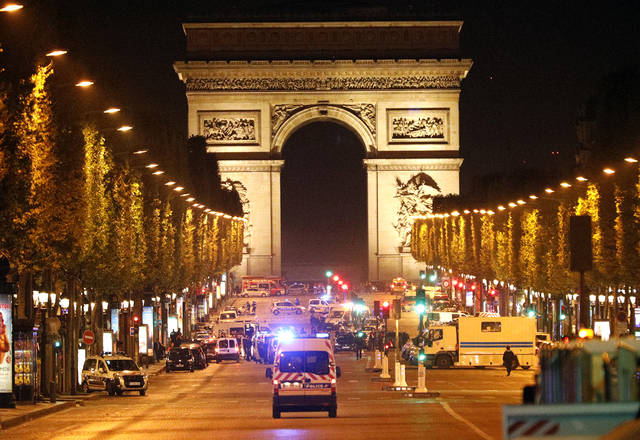PARIS — France began picking itself up Friday from another shooting claimed by the Islamic State group, with President Francois Hollande calling together the government’s security council and his would-be successors in the presidential election campaign treading carefully before voting
PARIS — France began picking itself up Friday from another shooting claimed by the Islamic State group, with President Francois Hollande calling together the government’s security council and his would-be successors in the presidential election campaign treading carefully before voting this weekend.
One of the key questions was if, and how, the attack that killed one police officer and wounded three other people might impact voting intentions. The risk for the main candidates was that misjudging the public mood, making an ill-perceived gesture or comment, could damage their chances. With polling just two days away, and campaigning banned from Friday at midnight, they would have no time to recover before polls open on Sunday. Candidates canceled or rescheduled final campaign events ahead of Sunday’s first-round vote in the two-stage election.
On the iconic avenue in the heart of Paris, municipal workers in white hygiene suits were out before dawn Friday to wash down the sidewalk where the assault took place — a scene now depressingly familiar after multiple attacks that have killed more than 230 people in France in little over two years. Delivery trucks did their early morning rounds; everything would have seemed normal were it not for the row of TV trucks parked up along the boulevard that is a must-visit for tourists.
Hollande’s defense and security council meeting was part of government efforts to protect Sunday’s vote, taking place under already heightened security, with more than 50,000 police and soldiers mobilized, and a state of emergency in place since 2015.
The attacker emerged from a car and used an automatic weapon to shoot at officers outside a Marks &Spencer’s department store at the center of the Champs-Elysees, anti-terrorism prosecutor Francois Molins said. Police shot and killed the gunman. One officer was killed and two seriously wounded. A female foreign tourist also was wounded, Molins said. The Islamic State group’s claim of responsibility just a few hours after the attack came unusually swiftly for the extremist group, which has been losing territory in Iraq and Syria.
In a statement from its Amaq news agency, the group gave a pseudonym for the shooter, Abu Yusuf al-Beljiki, indicating he was Belgian or had lived in Belgium. Belgian authorities said they had no information about the suspect.
Investigators searched a home early Friday in an eastern suburb of Paris believed linked to the attack. A police document obtained by The Associated Press identifies the address searched in the town of Chelles as the family home of Karim Cheurfi, a 39-year-old with a criminal record.
Police tape surrounded the quiet, middle-class neighborhood and worried neighbors expressed surprise at the searches. Archive reports by French newspaper Le Parisien say that Cheurfi was convicted of attacking a police officer in 2001.
Authorities are trying to determine whether “one or more people” might have helped the attacker, Interior Ministry spokesman Pierre-Henry Brandet said.
The attacker had been flagged as an extremist, according to two police officials, speaking on condition of anonymity because they weren’t authorized to publicly discuss the investigation.




